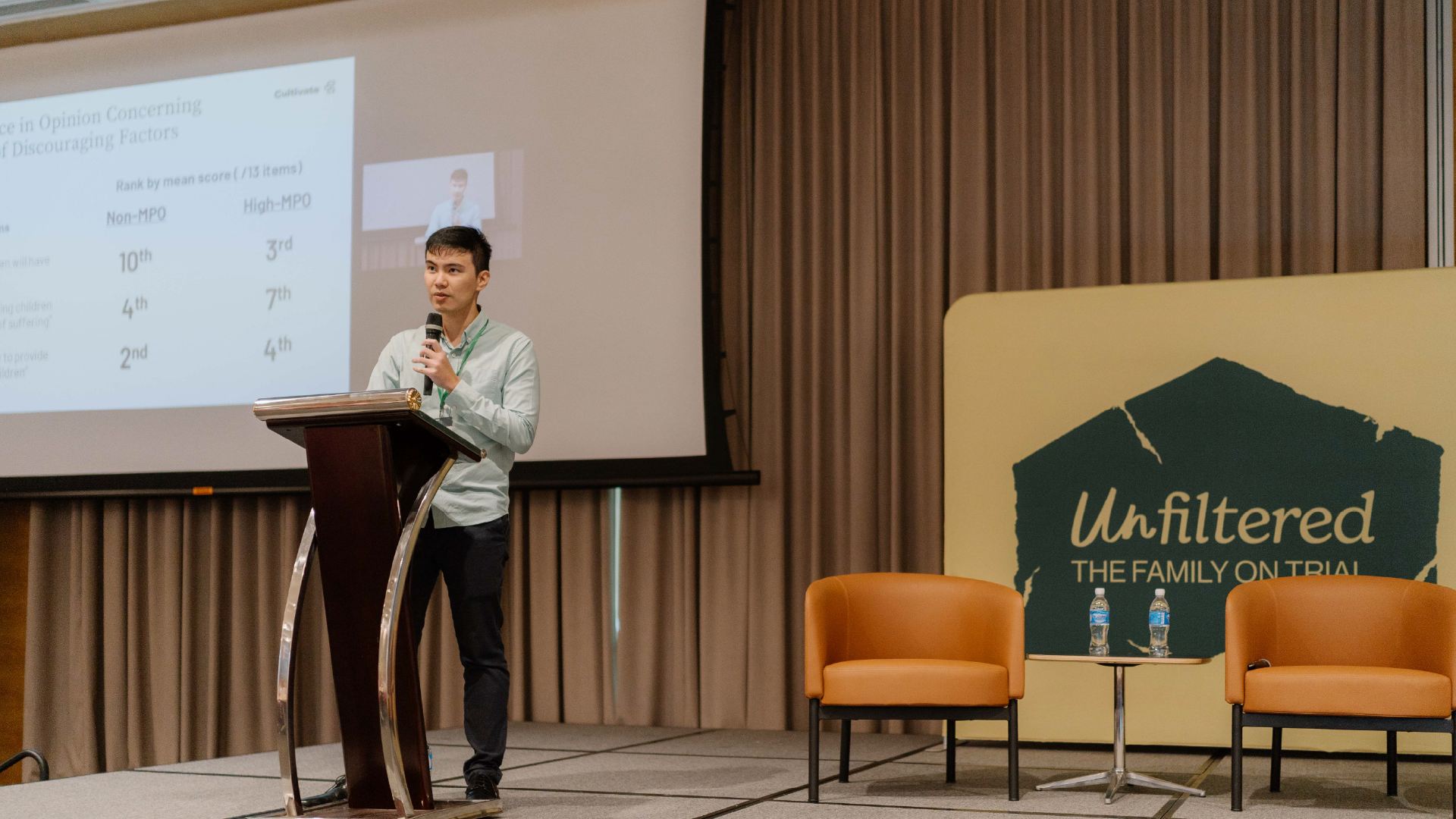More than 60 years ago, in 1961, the Women’s Charter became the law of the land. Speaking in Parliament, then-Minister for Labour and Law K. M. Byrne called the Women’s Charter “a significant advance in social legislation for the protection of the rights of women”.
One monumental social reform it introduced was a general ban on polygamy. This marked a significant step forward for women’s equality, for family and for children in Singapore.
Polygamy in Pre-Independence Singapore
For most of pre-Independence Singapore, there were men who took multiple wives. A leading Singapore family law professor noted that polygamy was “a privilege that Chinese and Hindu men had grown accustomed to”.
The British legally recognised polygamy in pre-Independence Singapore (part of British Malaya then) because the people who then lived here had brought this practice from their respective countries of origin, such as India and China. However, China banned polygamy in 1950, and India banned polygamy in 1956.
This created a strange inconsistency which Mr Lee Kuan Yew criticised in the Legislative Assembly (before it became the Parliament post-Independence) in 1956, citing moves to ban polygamy in India and China: “Time has marched on in India and in China, but time has stayed still in British Malaya.”
A huge social problem was created because the courts were applying English law to polygamous unions and their children, sometimes “modifying” the rules to prevent “injustice or oppression” but sometimes not doing so. These resulted in numerous complicated lawsuits and puzzling outcomes over matters such as the legal status of the widows, legitimacy of the children and inheritance after the man dies.
To illustrate this point, Mr Lee gave a hypothetical example of a man who died leaving ten wives and ten children. According to the law as summarised by Mr Lee, those ten wives can all go to Court to claim what English law allocated from the deceased man’s assets, which is “one-third to the widow, two-thirds to the children.” However, because polygamy was allowed, all ten widows are entitled to that one-third, whereas the ten children would get the remaining two-thirds.
Banning Polygamy
Singapore was granted full internal self-government in 1959. Among the promises of the People’s Action Party (PAP) after winning the General Elections that year was a ban on polygamy.
One leading advocate for the ban was the politician Chan Choy Siong, one of the founders of the PAP Women’s League in 1956. The League had adopted the slogan “one man one wife”.

In Parliament, Ms Chan said that monogamy would enable both the husband and the wife to “enjoy equal status in their matrimonial life” and that the passing of the Women’s Charter will “bring about a revolutionary change in society on a practical basis”. She attributed women’s problems to an “unreasonable society” where men take women as “pieces of merchandise”, “like pieces of meat put on the table for men to slice”.
“We cannot allow this inequality in the family to exist in this country,” she said. “We will liberate women from the hands of the oppressor.”
In her view, the Women’s Charter would give the women’s movement “a very flat and level road on which to travel”.
The Women’s Charter Bill was passed in 1961, thus banning polygamy for non-Muslim marriages. Since then, a “monogamous marriage” has been and remains defined under Singapore law as “a marriage which is recognised by the law of the place where it is contracted as a voluntary union of one man and one woman to the exclusion of all others during the continuance of the marriage”.
It is an offence for a person to marry more than one spouse. For example, in 2021, a man was jailed for 24 weeks for marrying his mistress, while being still legally married to his wife.
The Women’s Charter did not apply to Muslim marriages, which are governed today by the Administration of Muslim Law Act (AMLA).
However, AMLA is not an open license for Muslim men to casually marry more wives at their fancy. The Syariah Appeal Board has said in a 1990 case that one of the objectives of AMLA was “to control polygamy” (Othman bin Abdul Rahman v Norsiah bte Abdul Latip [1990] SGMML 4).
Under AMLA, the approval of a Kadi must be obtained before a Muslim man may marry an additional Muslim wife. As one academic article pointed out, non-exhaustive factors taken into account when deciding whether or not to permit a man to take another wife include the man’s income level, evidence of his ability to treat his wives equitably, and any lawful benefit.
Statistically, polygamous marriages are rare in Singapore, with the number of polygamous marriages amounting to 0.07% of Muslim marriages in 2020. In the Government’s view, this shows that the “very strict regulations” regarding polygamy have been “effective”.
A Path to Prosperity and Progress
Beyond empowering women and promoting their equal standing within the family, does the ban go further to benefit society? During the Legislative Assembly debates, Chan Choy Siong made an interesting point, arguing that the ban on polygamy would also help stabilise the political and social order:
To safeguard the stability of our parliamentary democracy, we must first of all have internal stability. We must put our society in order. Only then can we safeguard our parliamentary democracy. On the whole, the matrimonial system plays a very important part in the social order. There is a Chinese proverb, which says that if every family has matrimonial harmony, then we can control the country.
This insight has since become strongly supported by research. A 2012 article titled “The puzzle of monogamous marriage”, suggests that “normative monogamy” has a wider stabilising effect on society. The authors of the study use the term “normative monogamy” to refer to “the package of norms and laws governing modern marriage” and not only the rules about the number of spouses one can have. The authors also consider Islam to have “polygyny-inhibiting elements” which seek to “constrain men’s ability to accumulate wives”.
As summarised in the abstract of the article, the authors Joseph Henrich, Robert Boyd and Peter J. Richerson argue that:
In suppressing intrasexual competition and reducing the size of the pool of unmarried men, normative monogamy reduces crime rates, including rape, murder, assault, robbery and fraud, as well as decreasing personal abuses. By assuaging the competition for younger brides, normative monogamy decreases (i) the spousal age gap, (ii) fertility, and (iii) gender inequality. By shifting male efforts from seeking wives to paternal investment, normative monogamy increases savings, child investment and economic productivity. By increasing the relatedness within households, normative monogamy reduces intra-household conflict, leading to lower rates of child neglect, abuse, accidental death and homicide.
They speculate that the egalitarianism of normative monogamy “may have helped create the conditions for the emergence of democracy and political equality at all levels of government”. Similarly, a 2005 study of Sub-Saharan Africa found that banning polygyny (i.e. where a man has more than one wife) increased savings by 70 percent and increased output per capita by 170 percent. The study’s author Michèle Tertilt suggests that the practice of polygyny might be “an important contributing factor” to the continuing underdevelopment of sub-Saharan Africa, even though it is not the sole cause of poverty.
Conversely, it is well-known that Singapore rapidly developed “from Third World to First” in its post-Independence years. In its rapid economic development, the family unit has been a fundamental building block in this process. As Founding Prime Minister Lee Kuan Yew wrote in his book “From Third World to First: The Singapore Story: 1965-2000”:
Singapore depends on the strength and influence of the family to keep society orderly and maintain a culture of thrift, hard work, filial piety and respect for elders and for scholarship and learning. These values make for a productive people and help economic growth.
As a piece of social legislation reforming marriage in a positive manner, the normalisation of monogamy in Singapore has been beneficial to women, children and society as a whole. It is also set the stage for increased involvement of fathers in family life (instead of devoting their attention towards seeking new wives or placating other wives). This played an important role in promoting peace, prosperity and progress for the nation, which we are still reaping the benefits of today.


